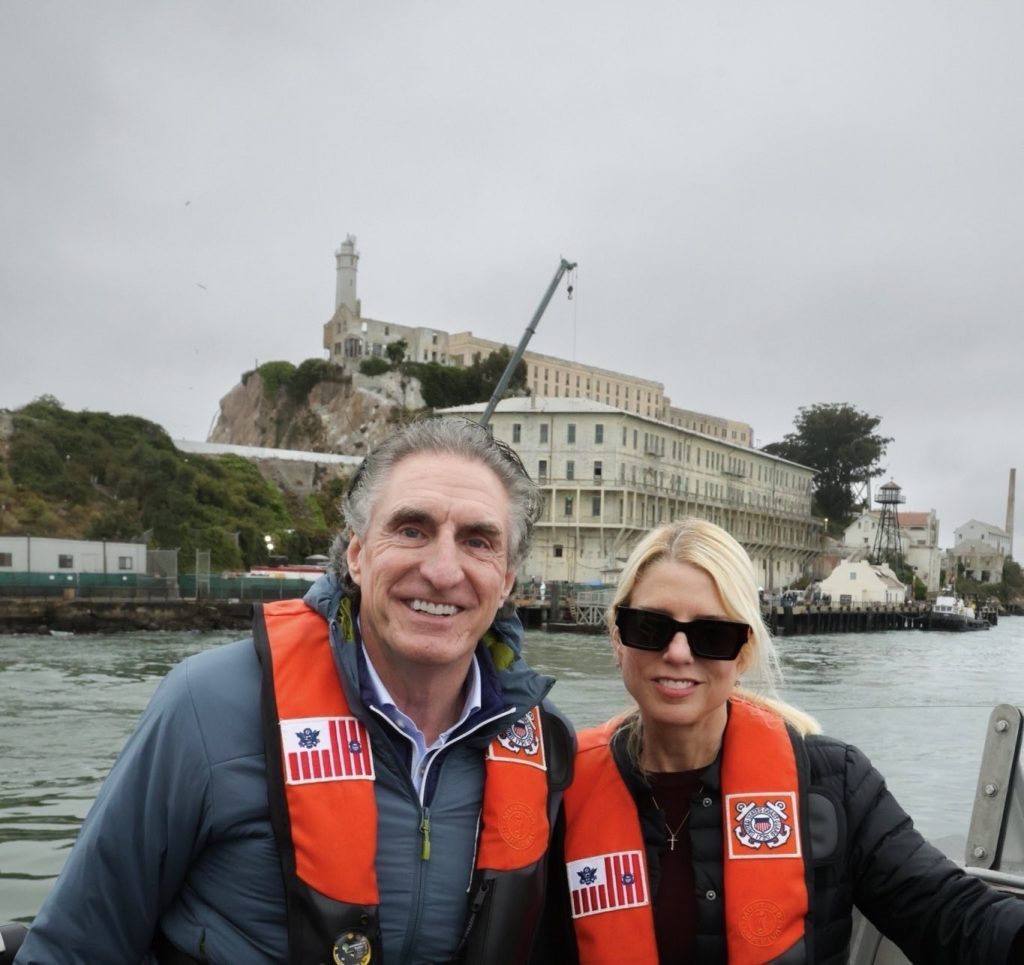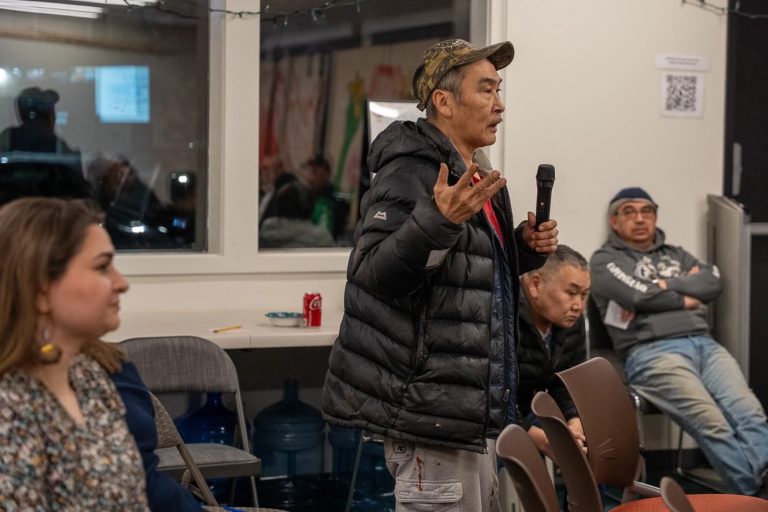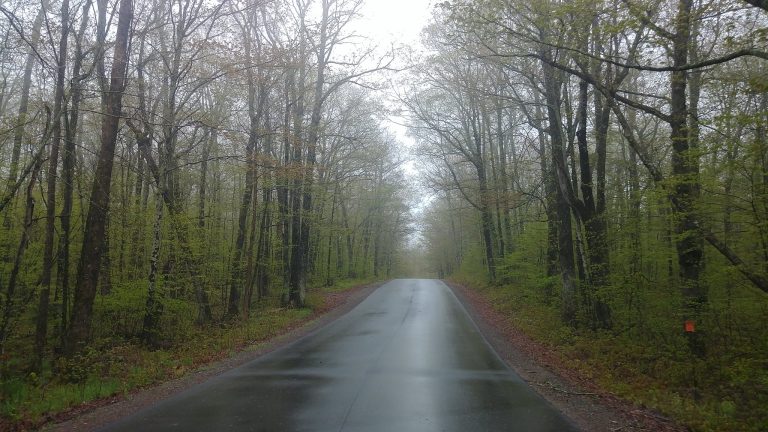Podcast: Play in new window | Download | Embed
After floating the idea of reopening a shuttered federal prison on Alcatraz Island in California, President Donald Trump tasked two of his Cabinet members to see it for themselves last week.
As KJZZ’s Gabriel Pietrorazio reports, President Trump’s agenda is at odds with efforts in recent decades to honor the site’s Indigenous history.
The National Park Service has been stewarding the 22-acre island since 1972, which now attracts more than a million tourists and $60 million in revenue annually.
But Interior Secretary Doug Burgum tells Fox News that could all change.
“This was part of the Bureau of Federal Prisons, and returning it to that purpose is relatively straightforward compared to a lot of transactions with federal land.”
His predecessor, Deb Haaland (Laguna Pueblo), also visited in 2021 to respect the island’s past.
“Like many of the public lands and the care of the Department of the Interior, these lands tell a story, and you can feel it.”
Nineteen Hopi men were imprisoned there in 1895, punished for refusing to send their children to boarding schools.
A 19-month occupation occurred seven decades later.
LaNada War Jack of the Shoshone-Bannock Tribes in Idaho was among them.
“We took Alcatraz because it was bringing Indian land back into Indian custody. Meant a lot to me and to a lot of our people.”

KRZA studios in Alamosa, Colo. (Courtesy KRZA.com)
The claw back of federal funding to public media could hit rural radio stations especially hard.
As the Mountain West News Bureau’s Kaleb Roedel reports, stations big and small are sounding the alarm, and a leader in Native media says tribal stations could be the first to go dark.
KRZA in Alamosa, Colo., KGLP in Gallup, N.M., and KGVA in Harlem, Mont.
These are just a few of the stations across the Mountain West that receive up to half of their annual budgets from federal funding.
Many more are located on tribal lands – like Idaho’s KIYE on the Nez Perce Reservation.
Brian Wadsworth is the chief operating officer of Native Public Media – which supports dozens of tribal stations that rely heavily on federal funds.
“Some of our stations, they’re managed by one person, so to lose funding, we’d see a lot of our stations go dark.
He says these stations are often the only local news source – and broadcast critical information, like national emergency alerts and extreme weather warnings.
That’s why South Dakota Republican Senator Mike Rounds says he secured unused climate funds to direct to dozens of tribal stations.
But, for now, Wadsworth says they don’t have any details regarding how accessible and sustainable that funding would be.

The Washington Commanders roll out their team name and logo at media reveal from FedExField, Landover, Md., February 2, 2022. (Photo: Joe Glorioso / All-Pro Reels)
The National Congress of American Indians (NCAI) says it opposes any effort to revive “racist mascots” that demean Indigenous communities.
The organization is responding to Trump’s call for the professional Washington Commanders football team to revert to its former name, the Washington R-word.
In a statement Monday, NCAI said, since 1950, its priories have included eradicating Native-themed mascots.
NCAI says Indian Country has repeatedly come together to condemn the unsanctioned use of Native mascots, contrary to any assertions by the president that Native Americans want the name back.
Trump threatened to restrict a stadium deal for the Washington team if they don’t go back to the name.
The White House told reporters Monday when questioned about the comments that the “president was serious” and “wants to see the name of that team changed.”
Trump posted the comments on his social media site Sunday and also said he wants the professional Cleveland Guardians baseball team to revert back to its Native-themed name.
Get National Native News delivered to your inbox daily. Sign up for our daily newsletter today.



